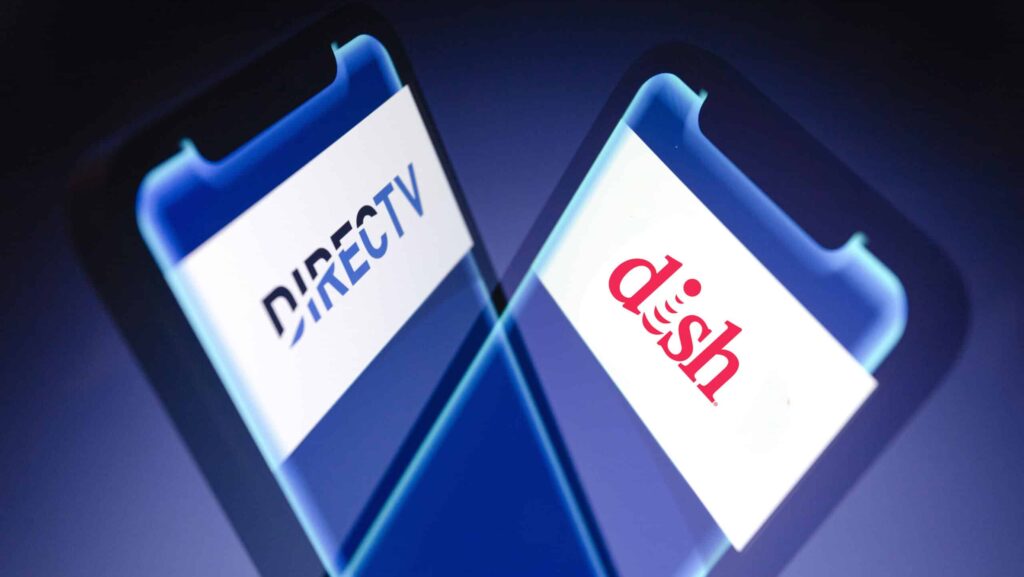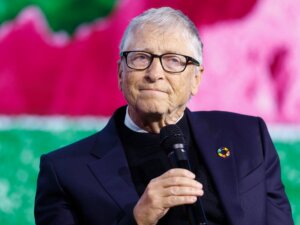Summary:
-
DirecTV and Dish Network plan to merge, creating the largest pay-TV provider in the U.S.
-
The deal involves DirecTV acquiring Dish’s video distribution business for $10 billion and assuming $9.75 billion in debt.
-
The merger aims to boost negotiating power with content providers and generate $1 billion in annual cost savings.
DirecTV and Dish Network, two of the leading satellite television providers in the United States, are poised to merge in a significant move that will reshape the pay-TV landscape. On Monday, September 30, DirecTV announced it has reached an agreement with EchoStar, Dish’s parent company, to acquire Dish in a deal valued at nearly $10 billion. This merger is set to create the largest pay-TV provider in the country.
Under the terms of the agreement, DirecTV will purchase EchoStar’s video distribution business, which includes Dish TV and Sling TV, for a nominal fee of $1, along with assuming approximately $9.75 billion in net debt from Dish. The companies anticipate the merger will close in the fourth quarter of 2025, pending necessary regulatory approvals, including antitrust clearance.
In a related development, AT&T announced it would sell its 70% stake in DirecTV to TPG, the private equity firm that holds the remaining 30%, for $7.6 billion. This transaction is expected to close in the latter half of 2025 and is not contingent on the DirecTV-Dish merger.
The impending merger will need approval from U.S. regulators, but industry analysts are optimistic it will pass given the decline of traditional pay-TV subscriptions as consumers shift towards streaming services. DirecTV CEO Bill Morrow indicated during a call with Wall Street analysts that third-party data suggests there would be “no loss of competition” resulting from the merger, even in rural areas.
Currently, DirecTV and Dish combined have approximately 18 million subscribers, a significant decrease of 63% from their peak in 2016. DirecTV reports about 10 million pay-TV subscribers, including those from DirecTV Stream and U-verse TV, compared to a high of 25.5 million in late 2016. Dish, which previously had more than 14 million subscribers, ended the second quarter of 2024 with approximately 8.07 million, broken down into 6.07 million for Dish TV and 2.0 million for Sling TV.
Upon completion of the acquisition, Morrow and CFO Ray Carpenter will continue to lead the merged company, which will be headquartered in El Segundo, California, where DirecTV is currently based. Morrow expressed optimism about the merger’s potential, stating that it would allow the combined company to work more effectively with programmers. He envisions a future for TV that focuses on curating and distributing content tailored to customer interests while achieving operational efficiencies.
ADVERTISEMENT
The merger also alleviates financial pressure on EchoStar, which has been grappling with looming debt payments. TPG Angelo Gordon, part of TPG’s investment unit, along with DirecTV, is providing $2.5 billion in financing to fully refinance Dish’s upcoming $2 billion debt maturity due in November 2024. The remaining $500 million owed to EchoStar will be amortized until the deal’s expected close.
DirecTV and Dish have a long history, having launched in 1994 and 1996, respectively. They have competed vigorously against cable television providers. However, in recent years, both companies have seen significant declines in subscribers as consumers increasingly turn to streaming options. While both DirecTV and Dish have introduced internet-based pay-TV packages, these have not been sufficient to offset losses from their traditional satellite services.
Previous merger attempts between DirecTV and Dish, dating back to 2001, faced regulatory challenges. However, current market conditions may favor approval, according to Craig Moffett, a principal analyst at MoffettNathanson. He noted, “It’s hard to imagine that regulators would block a deal. Better to have one satellite TV operator than none.”
EchoStar’s leadership has indicated that the merger will allow the company to focus on deploying its 5G wireless network and strengthening its Boost Mobile brand, which aims to establish itself as the fourth facilities-based carrier in the U.S. EchoStar CEO Hamid Akhavan affirmed this goal during a recent earnings call.
The combination of DirecTV and Dish is expected to yield cost savings of at least $1 billion annually by the third year post-merger. However, Moffett has cautioned that operational synergies may be limited due to differences in technology and business models between the two companies.
By merging, DirecTV and Dish will also enhance their negotiating power with content providers, an increasingly important factor in the pay-TV industry. Recently, DirecTV faced challenges when it failed to reach a renewal agreement with Disney, resulting in a 13-day blackout of Disney channels, including ESPN and ABC. The two parties eventually reached a new agreement that includes bundling options for Disney’s streaming services.
ADVERTISEMENT
In summary, the merger between DirecTV and Dish Network signifies a major shift in the television landscape, driven by the need for consolidation amid declining traditional viewership. As they prepare for this new chapter, both companies will need to navigate regulatory scrutiny and execute a successful integration to achieve their strategic goals.









